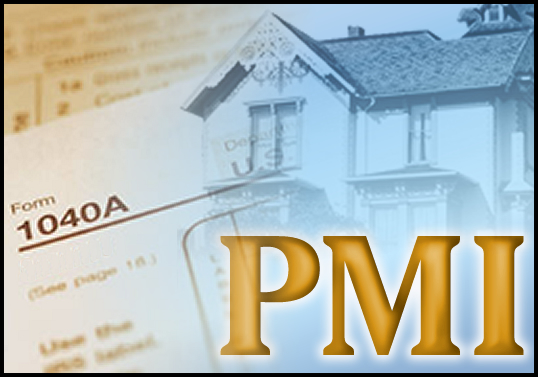Millions of Borrowers Will Benefit
Shawn Kaplan - Licensed Mortgage Banker
 The federal government's Private Mortgage Insurance legislation is great news for the real estate industry! Enacted on January 1st, 2007, the bill makes Private Mortgage Insurance (PMI) tax deductible for borrowers whose personal adjusted gross income is $100,000 or less. For millions of home buyers, the bill creates an amazing opportunity to finance a more expensive home or potentially obtain a lower payment for the same-priced home, while reducing annual income taxes by hundreds of dollars.
The federal government's Private Mortgage Insurance legislation is great news for the real estate industry! Enacted on January 1st, 2007, the bill makes Private Mortgage Insurance (PMI) tax deductible for borrowers whose personal adjusted gross income is $100,000 or less. For millions of home buyers, the bill creates an amazing opportunity to finance a more expensive home or potentially obtain a lower payment for the same-priced home, while reducing annual income taxes by hundreds of dollars.What is PMI?
Designed to protect lenders from defaults and foreclosures, Private Mortgage Insurance is required for loans exceeding 80% of the property's value or sale price. Prior to the legislation, PMI was generally viewed with contempt by home buyers because of its perceived high cost and the fact that it was not tax deductible. For many borrowers, PMI was the only means available for financing their mortgage.
It wasn't until the 1990s, when lenders began allowing "piggyback" financing, that homeowners and home buyers had an opportunity to finance a home without PMI. Under this scenario, buyers would take out two loans to cover the total amount borrowed. The first mortgage accounted for 80% or less of the purchase price or appraised value of the home; and the second mortgage, or "piggyback", covered the remaining amount required to fund the transaction.
Reconsidering PMI
Now, thanks to Congress, potential borrowers may want to reconsider their aversion to PMI. After all, PMI makes it easier for some borrowers to qualify for a loan. Consumers should be aware that when the primary loan is accompanied by a Home Equity Line of Credit (HELOC), the approval of the first loan is contingent upon the approval of the second. In most cases, the approval requirements for the second loan are more stringent than those for the first. Alleviating this obstacle may enable buyers to consider a more expensive home or the purchase of preferred upgrades today rather than years from now.
It's also important to remember that PMI doesn't last forever. If a home appreciates at a rate of 4% annually, borrowers will be in a position to remove PMI within four years, resulting in an automatic reduction in the mortgage payment.
What to Do Now
Whether consumers are considering purchasing a new home or restructuring their finances, the first thing they should do is call a mortgage professional. There is a wide variety of options to consider, beyond those that have been presented here, and a mortgage professional will help them to determine which scenario best fits their needs.
About the Author
Shawn Kaplan is an active, 50 state Licensed loan officer with Access National Mortgage.
Email Shawn at skaplan@accessnational.com or call 615-426-3182.
Bonus: Click to get a free, no-obligation rate quote. I love to work with my readers!

